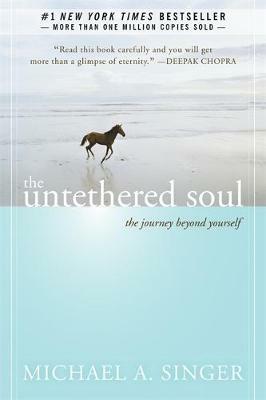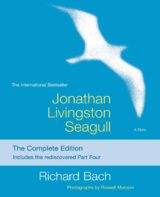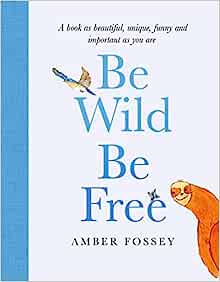CONTRADICTORY SONGS AND POEMS THAT SPEAK TO US … OR NOT
We all have that one song or poem that feels like it was written just for us. The words seem to mirror our thoughts and emotions so perfectly that it’s almost uncanny. It’s as if the artist has grasped our feelings, and put them into words.
This connection isn’t just comforting – it’s psychologically significant. It gives us something to relate to, validating our emotions and making us feel less alone.
But what happens when different works of art approach the same themes in completely contradictory ways? Exploring these opposing perspectives can remind us that human emotions and experiences are complex and multi-faceted. There’s no single ‘right’ way to process our journey, and that’s a beautiful thing.
Contradictory Works: A Journey Through Feelings
As an example, consider John Donne’s poem ‘No Man Is an Island” and Simon & Garfunkel’s song ‘I Am a Rock‘. Donne’s words remind us of our interconnectedness, declaring that we are all pieces of a greater whole. Meanwhile, Simon & Garfunkel paint a picture of intentional isolation, with lyrics like ‘I am a rock, I am an island’. Both perspectives are valid; some days we need the comfort of connection, while other times we may crave solitude.
The Power of Duality
Exploring opposing works highlights an essential truth about life: it’s okay to feel conflicted. Some days, we might resonate with the optimism of Louis Armstrong’s ‘What a Wonderful World‘. Other days, the melancholy of Tears for Fears’ ‘Mad World” might feel truer to our hearts.
By seeing these contrasts, we’re reminded that emotions are fluid. What feels true today might change tomorrow, and that’s perfectly normal. It’s all part of the richness of being human.
A Message of Validation
Ultimately, this exploration of contradictions is a celebration of diversity—not just in art but in the human experience itself. It’s a reminder that whether we find solace in joy or melancholy, resilience or surrender, our feelings are valid.
Art, in its many forms, offers us a mirror to our inner world. It doesn’t tell us how to feel but gives us the language to understand and express those feelings.
So, the next time a song or poem resonates with you – or even contradicts your perspective – embrace it. Let it remind you that your journey is unique, your emotions are valid, and there’s no single ‘right’ way to navigate this beautiful, complex life.
With all of this in mind, I set out to explore songs and poems that seem to contradict each other. These works offer opposing views on universal themes like love, hope, and resilience, illustrating that every feeling can be seen from multiple perspectives.
Community vs. Individuality
POEM: No Man Is an Island – John Donne
POEM: I Am – John Clare
No Man Is an Island – Donne emphasizes the interconnectedness of humanity.
“No man is an island, entire of itself; every man is a piece of the continent, a part of the main.”
I Am – Clare focuses on individual isolation and the self as a distinct, solitary entity.
“I am: yet what I am none cares or knows;
My friends forsake me like a memory lost.”
Contradiction: Donne celebrates collective unity, while Clare focuses on disconnection from others.
The Nature of Love
POEM: Love is Not All – Edna St. Vincent Millay
SONG: Love is All You Need – The Beatles
Love is Not All – Millay reflects on the limits of love, suggesting that while love is important, it cannot sustain physical survival or solve practical problems.
“Love is not all: it is not meat nor drink,
Nor slumber nor a roof against the rain.”
Love is All You Need – The Beatles argue that love is the ultimate solution, surpassing all material needs.
“There’s nothing you can do that can’t be done…
All you need is love.”
Contradiction – Millay asserts that love is a shallow need, whereas the Beatles maintain that love will get you through everything.
Death and Immortality
POEM: Do Not Go Gentle into That Good Night – Dylan Thomas
SONG: Let It Be – The Beatles
Do Not Go Gentle into That Good Night – Thomas passionately calls for resistance against death, urging one to “rage” against dying.
“Do not go gentle into that good night.
Rage, rage against the dying of the light.”
Let It Be – The Beatles suggest peaceful acceptance and trust in life’s natural flow, including its end.
“When I find myself in times of trouble, Mother Mary comes to me,
Speaking words of wisdom, let it be.”
Contradiction – One advocates for a fierce fight against the inevitable, while the other embraces serenity and surrender.
Individuality vs. Conformity
POEM: If – Rudyard Kipling
SONG: Creep – Radiohead
If – Kipling encourages self-reliance, resilience, and adherence to personal values as a means to achieve greatness.
“If you can meet with Triumph and Disaster
And treat those two impostors just the same.”
Creep – Radiohead expresses alienation and self-doubt, embracing non-conformity but with an undercurrent of insecurity.
“I’m a creep, I’m a weirdo.
What the hell am I doing here?”
Contradiction – Kipling promotes self-confidence and mastery, while Radiohead dwells on self-perceived inadequacy and exclusion.
The Value of Ambition
POEM: Ulysses – Alfred Lord Tennyson
POEM: The Lotus-Eaters – Alfred Lord Tennyson
Ulysses – Advocates for perpetual striving and ambition despite the hardships of life.
“To strive, to seek, to find, and not to yield.”
The Lotus-Eaters – Glorifies escapism and rejecting ambition in favour of serene indolence.
“Why should we toil alone,
We only toil, who are the first of things.”
Contradiction: One praises endless striving; the other endorses restful surrender.
Nature’s Relationship with Humanity
POEM: Lines Composed a Few Miles Above Tintern Abbey – William Wordsworth
POEM: Dover Beach – Matthew Arnold
Lines Composed a Few Miles Above Tintern Abbey – Wordsworth depicts nature as a source of solace, spiritual renewal, and moral guidance.
“Nature never did betray
The heart that loved her.”
Dover Beach – Arnold portrays nature as indifferent, with the sea symbolizing human misery and existential uncertainty.
“The Sea of Faith
Was once, too, at the full, and round earth’s shore
Lay like the folds of a bright girdle furled.”
Contradiction – Wordsworth sees nature as a nurturing force, while Arnold finds it bleak and uncaring.
The Passage of Time
POEM: To the Virgins, to Make Much of Time – Robert Herrick
POEM: Ode on a Grecian Urn – John Keats
To the Virgins, to Make Much of Time – Herrick urges readers to seize the day before time steals away youth and beauty.
“Gather ye rosebuds while ye may,
Old Time is still a-flying.”
Ode on a Grecian Urn – Keats celebrates the timelessness of art, suggesting that some moments are best preserved in eternal stasis.
“Forever wilt thou love, and she be fair!”
Contradiction – Herrick insists on immediate action, while Keats admires the permanence of captured moments.
Self-Reliance vs. Dependence
SONG: I Will Survive – Gloria Gaynor
SONG: Without You – Harry Nilsson
I Will Survive – Celebrates self-reliance and resilience after heartbreak.
“Oh no, not I, I will survive.
Oh, as long as I know how to love, I know I’ll stay alive.”
Without You – Expresses an inability to move on and a deep dependence on another.
“I can’t live if living is without you.”
Contradiction – Gaynor champions independence, while Nilsson expresses an inability to live without love.
Carpe Diem vs. Endurance
SONG: Born to Run – Bruce Springsteen
SONG: Hold On – Wilson Phillips
Born to Run – Advocates seizing the moment, escaping constraints, and chasing freedom.
“We gotta get out while we’re young,
‘Cause tramps like us, baby, we were born to run.”
Hold On – Encourages patience and perseverance through life’s challenges.
“Don’t you know things can change?
Things’ll go your way if you hold on for one more day.”
Contradiction – Springsteen urges immediate action, while Wilson Phillips advises patience.
Optimism vs. Pessimism
SONG: What a Wonderful World – Louis Armstrong
SONG: Mad World – Tears for Fears
What a Wonderful World – Celebrates the beauty and wonder of life and the world around us.
“I see trees of green, red roses too,
I see them bloom for me and you.”
Mad World – Reflects on the alienation, sadness, and absurdity of modern life.
“It’s a very, very mad world.”
Contradiction – Armstrong exudes optimism and joy, while Tears for Fears portrays existential despair.
Pursuit of Wealth vs. Rejection of Materialism
SONG: Money – Pink Floyd
SONG: Can’t Buy Me Love – The Beatles
Money – Critiques the allure and corrupting influence of wealth while acknowledging its power.
“Money, it’s a hit.
Don’t give me that do-goody-good bull.”
Can’t Buy Me Love – Rejects the idea that money can bring happiness or love.
“I don’t care too much for money,
Money can’t buy me love.”
Contradiction – Pink Floyd explores the complexity of wealth, while The Beatles dismiss its importance entirely.
Freedom vs. Commitment
SONG: Free Bird – Lynyrd Skynyrd
SONG: Stand By Me – Ben E. King
Free Bird – Celebrates freedom and the refusal to be tied down.
“If I leave here tomorrow,
Would you still remember me?”
Stand By Me – Pleads for unwavering commitment and support in the face of challenges.
“Stand by me, oh stand by me.”
Contradiction – Lynyrd Skynyrd values freedom over attachment, while Ben E. King treasures loyalty and togetherness.
Life as a Struggle vs. Life as Joy
SONG: Boulevard of Broken Dreams – Green Day
SONG: Walking on Sunshine – Katrina and the Waves
Boulevard of Broken Dreams – Reflects on loneliness and life’s hardships.
“I walk a lonely road,
The only one that I have ever known.”
Walking on Sunshine – Radiates pure happiness and enthusiasm for life.
“I’m walking on sunshine, whoa!
And don’t it feel good?”
Contradiction – Green Day views life as a solitary challenge, while Katrina and the Waves revel in joy and optimism.
Moving On vs. Holding On
SONG: Go Your Own Way – Fleetwood Mac
SONG: Against All Odds (Take a Look at Me Now) – Phil Collins
Go Your Own Way – Encourages independence and parting ways.
“You can go your own way!
Go your own way!”
Against All Odds – Pleads for a second chance and the pain of letting go.
“So take a look at me now,
‘Cause there’s just an empty space.”
Contradiction – Fleetwood Mac advocates separation, while Phil Collins mourns it and hopes for reconciliation.
Rebellion vs. Obedience
SONG: Another Brick in the Wall – Pink Floyd
SONG: Teach Your Children – Crosby, Stills, Nash & Young
Another Brick in the Wall – Rejects authority and institutional control, particularly in education.
“We don’t need no education,
We don’t need no thought control.”
Teach Your Children – Emphasizes the importance of passing down values and wisdom through generations.
“Teach your children well,
Their father’s hell did slowly go by.”
Contradiction – Pink Floyd critiques systems of control, while Crosby, Stills, Nash & Young highlight the nurturing role of education.
Living in the Present vs. Dwelling on the Past
SONG: Live Like You Were Dying – Tim McGraw
SONG: Yesterday – The Beatles
Live Like You Were Dying – Encourages embracing life and making the most of the present.
“I went skydiving, I went Rocky Mountain climbing…
I loved deeper and I spoke sweeter.”
Yesterday – Longs for the past and mourns its loss.
“Yesterday, love was such an easy game to play,
Now I need a place to hide away.”
Contradiction – Tim McGraw focuses on living fully in the present, while The Beatles reflect on the irretrievable past.
Human Connection vs. Isolation
SONG: With a Little Help from My Friends – The Beatles
SONG: The Sound of Silence – Simon & Garfunkel
With a Little Help from My Friends – Celebrates the joy and support of friendship.
“I get by with a little help from my friends.”
The Sound of Silence – Explores isolation and the inability to communicate.
“Hello darkness, my old friend,
I’ve come to talk with you again.”
Contradiction – The Beatles emphasize connection, while Simon & Garfunkel delve into solitude.
Optimism vs. Cynicism
SONG: Don’t Stop – Fleetwood Mac
SONG: Everybody Hurts – R.E.M.
Don’t Stop – Advocates for hope and looking forward to better days.
“Don’t stop thinking about tomorrow,
It’ll soon be here.”
Everybody Hurts – Offers empathy but acknowledges widespread pain and suffering.
“When the day is long and the night is yours alone,
When you’re sure you’ve had enough of this life, well hang on.”
Contradiction – Fleetwood Mac is upbeat and future-focused, while R.E.M. reflects on present struggles.
Love as Eternal vs. Love as Fleeting
SONG: Endless Love – Diana Ross and Lionel Richie
SONG: Love Stinks – The J. Geils Band
Endless Love – Celebrates love as eternal and unchanging.
“You’ll be the only one, ’cause no one can deny,
This love I have inside, and I’ll give it all to you.”
Love Stinks – Cynically critiques love as frustrating and unreliable.
“You love her, but she loves him,
And he loves somebody else—you just can’t win.”
Contradiction – Diana Ross and Lionel Richie view love as pure and everlasting, while The J. Geils Band portrays it as a source of disappointment.
Work as Freedom vs. Work as Oppression
SONG: 9 to 5 – Dolly Parton
SONG: Working Class Hero – John Lennon
9 to 5 – Critiques the daily grind while maintaining a tone of resilience and humour.
“Working 9 to 5, what a way to make a living,
Barely getting by, it’s all taking and no giving.”
Working Class Hero – Describes work as dehumanizing and a tool of societal control.
“As soon as you’re born, they make you feel small,
By giving you no time instead of it all.”
Contradiction – Dolly Parton finds humour in the struggle, while John Lennon offers a bleak critique of systemic oppression.
Hope vs. Despair
POEM: Hope is the Thing with Feathers – Emily Dickinson
POEM: The Hollow Men – T.S. Eliot
Hope is the Thing with Feathers – Celebrates hope as a persistent and uplifting force.
“Hope is the thing with feathers –
That perches in the soul”
The Hollow Men – Describes life as devoid of meaning and ends in despair.
“This is the way the world ends,
Not with a bang but a whimper.”
Contradiction – Dickinson finds hope in adversity, while Eliot reflects on existential despair.
The Power of Nature vs. Nature’s Indifference
POEM: I Wandered Lonely as a Cloud – William Wordsworth
POEM: Neutral Tones – Thomas Hardy
I Wandered Lonely as a Cloud – Finds solace and joy in the beauty of nature.
“And then my heart with pleasure fills,
And dances with the daffodils.”
Neutral Tones – Reflects on the cold and indifferent aspects of nature, mirroring human sadness.
“The sun was white, as though chidden of God,
And a few leaves lay on the starving sod.”
Contradiction – Wordsworth celebrates nature’s beauty, while Hardy portrays its cold indifference.
Human Achievement vs. Human Fragility
POEM: Invictus – William Ernest Henley
POEM: Ozymandias – by Percy Bysshe Shelley
Invictus – Declares human strength and resilience in the face of adversity.
“I am the master of my fate:
I am the captain of my soul.”
Ozymandias – Highlights the impermanence of human achievements and power.
“Look on my Works, ye Mighty, and despair!
Nothing beside remains.”
Contradiction – Henley emphasizes control and triumph, while Shelley critiques the arrogance of human accomplishment.
Living in the Moment vs. Looking Back
POEM: To His Coy Mistress – Andrew Marvell
POEM: The Road Not Taken – Robert Frost
To His Coy Mistress – Advocates for seizing the day and living life fully.
“Thus, though we cannot make our sun
Stand still, yet we will make him run.”
The Road Not Taken – Reflects on the long-term impact of past choices and decisions.
“I took the one less traveled by,
And that has made all the difference.”
Contradiction – Marvell urges immediate action, while Frost ponders the significance of past decisions.
War as Glory vs. War as Horror
Poem: The Charge of the Light Brigade – Alfred Lord Tennyson
Poem: Dulce et Decorum Est – Wilfred Owen
The Charge of the Light Brigade – Celebrates the bravery and heroism of soldiers.
“Theirs not to make reply,
Theirs not to reason why,
Theirs but to do and die.”
Dulce et Decorum Est – Depicts the brutal and horrific realities of war.
“If you could hear, at every jolt, the blood
Come gargling from the froth-corrupted lungs…”
Contradiction – Tennyson romanticises war, while Owen exposes its grim and gruesome truth.
Life’s Beauty vs. Life’s Burden
POEM: Ode to a Nightingale – John Keats
POEM: The Love Song of J. Alfred Prufrock – T.S. Eliot
Ode to a Nightingale – Finds transcendence and beauty in art and nature.
“Thou wast not born for death, immortal Bird!
No hungry generations tread thee down.”
The Love Song of J. Alfred Prufrock – Despairs over the monotony and indecision of modern life.
“I have measured out my life with coffee spoons.”
Contradiction – Keats sees beauty and escape in art, while Eliot dwells on life’s tedium and uncertainty.
This list of contradictory poems and songs merely scratches the surface. I wanted to provide an eclectic mix of examples, and I hope that it will inspire you to look in more depth at some of the works featured. The beauty of these works is that they are all open to interpretation; we are free to fix our own meaning to the words, and of course, you may not agree with my interpretations.
The poem which holds a deep resonance for me is Alone by Edgar Allan Poe. Why? Because, with my unique set of experiences, it speaks to me.
From childhood’s hour I have not been
As others were – I have not seen
As others saw – I could not bring
My passions from a common spring –
From the same source I have not taken
My sorrow – I could not awaken
My heart to joy at the same tone –
And all I lov’d – I lov’d alone –
Then – in my childhood – in the dawn
Of a most stormy life – was drawn
From ev’ry depth of good and ill
The mystery which binds me still –
From the torrent, or the fountain –
From the red cliff of the mountain –
From the sun that ‘round me roll’d
In its autumn tint of gold –
From the lightning in the sky
As it pass’d me flying by –
From the thunder, and the storm –
And the cloud that took the form
(When the rest of Heaven was blue)
Of a demon in my view –



